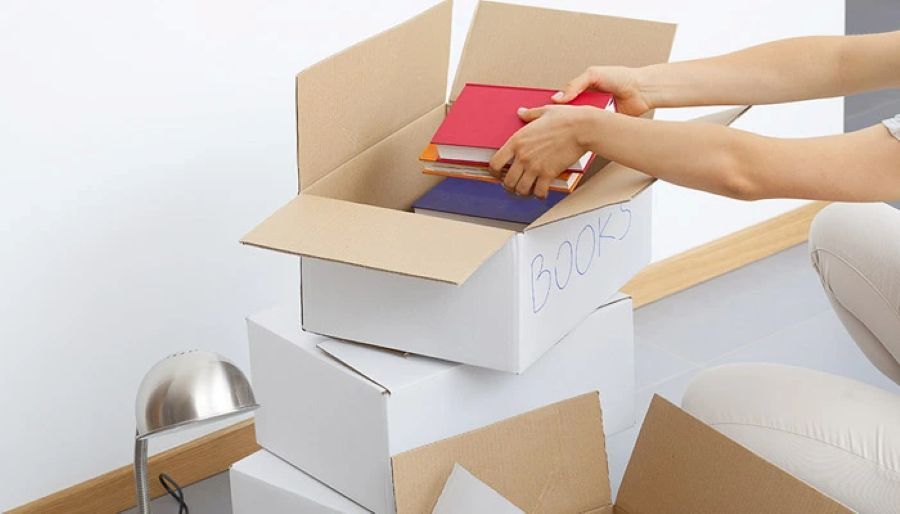How to Make Moving Easier for Toddlers?
Moving with toddlers can be much easier when you prepare them early and keep things simple. With the right approach, your little one can see moving as an exciting adventure instead of a scary change.
Moving is hard for everyone. But for toddlers, it can feel extra scary. They don't understand why their safe space is changing. The good news? You can help make this big change feel like a fun adventure. This guide will show you simple ways to prepare your toddler, keep them calm during the move, and help them settle into their new home quickly.
Understanding Why Moving Is Hard for Toddlers
Toddlers Need Routine and Familiar Things
Young children thrive on routine. They feel safe when things stay the same. Routine is critical to a young child feeling secure. Toddlers love to know what's coming next. So moving homes, family turmoil, changing schedules, or routines very suddenly can lead to anxiety.
Moving disrupts everything they know. Their bedroom looks different. Their toys are in boxes. Even meal times might change. This can make them feel worried or confused.
Signs Your Toddler Is Stressed About Moving
Watch for these signs that your little one is having a hard time:
- More tantrums than usual
- Trouble sleeping or nightmares
- Clinging to you more
- Not wanting to eat
- Going backward with potty training
- Acting extra shy or scared
Some of the signs a toddler may be experiencing stress or anxiety include: This could be excessive crying, tantrums, meltdowns or very physical behaviors like hitting and biting. Ultimately, all these expressions boil down to the child having a lower frustration tolerance.
When to Start Talking About the Move
The Perfect Timing
Start talking to your toddler about moving about one month before the big day. A month before you move, sit down with your children and tell them that you're making a move. Telling them at this point in the process gives kids enough time to adjust to the new situation, but is short enough so they won't dwell on, and worry about, the changes ahead.
This gives them enough time to get used to the idea. But it's not so long that they'll worry for months.
How to Break the News
Keep your explanation simple and clear:
- "We're moving to a new house next month"
- "All our toys and furniture will come with us"
- "You'll have a new bedroom that we can decorate together"
- "We'll still be a family, just in a different place"
Emphasize that you will be taking all of their stuff with you. Their toys, blankets, and furniture won't be left behind.
Preparing Your Toddler for the Move
Use Simple Words They Can Understand
Explain the move in terms your toddler can grasp. Use words like "new house" instead of "relocating." Show them pictures of the new home if you have them.
Try using a story to convey the situation to them in terms they can understand. Get down to their level. Pick up your child or sit with them so that you can make eye contact.
Read Books About Moving Together
Books are great tools to help toddlers understand big changes. Some good options include:
- "The Berenstain Bears' Moving Day" by Stan and Jan Berenstain
- "Katie Moves" by Liesbet Slegers is the perfect book about moving for toddlers
- "Boomer's Big Day" by Constance W. McGeorge
- "Moving House" by Anne Civardi
Picture books also give kids a visual guide that helps with tough topics and feelings.
Let Them Help with Simple Tasks
Give your toddler small jobs to do:
- Put stuffed animals in a special box
- packing up a box of items from their room
- Choose which toys to pack first
- Help put tape on boxes (with your help)
Giving your kids ownership of their part of the move — again, age-appropriately, of course — helps them feel like they're a part of the process and can make for an easier transition.
Visit the New Home If Possible
If you can, take your toddler to see the new house before moving day.
Make sure to visit your new home at least once (on the inside) with your child, but visit the outside as often as you can with them. When you do visit, have conversations about where things will go when you do live there and what their everyday life will be like in the new home.
Show them:
- Where their room will be
- Where they'll eat meals
- Any parks or playgrounds nearby
- The kitchen where snacks come from
Making Moving Day Easier
Create a Special Moving Day Kit
Pack a special bag with your toddler's favorite things:
Put together an easy-to-access moving day bag full of any special items that can help your kids feel comfortable during the plane ride or drive to your new home.
Include:
- Favorite stuffed animal or blanket
- Snacks they love
- A few small toys
- iPad or tablet with downloaded shows
- Comfort items like a pacifier
Consider Childcare for Moving Day
Having your toddler underfoot during the move can be dangerous, not to mention challenging. If you have ever tried making sure the movers didn't leave your boxes on the sidewalk while frantically packing the last of your belongings you know that having a toddler around is going to be a bad idea.
If possible, have someone watch your toddler during the actual moving process. This keeps them safe and lets you focus on the move.
Pack Their Room Last, Unpack It First
Everything for the kids' rooms should be colorfully marked. These boxes should go into the moving truck last and come off first. Then, shut the door to your child's room and start unpacking.
This way, your toddler will have a familiar space right away in the new home.
Helping Your Toddler Adjust After the Move
Set Up Their Space First
Make your toddler's room feel familiar as quickly as possible. Set up your child's sleeping and play spaces in the new home as soon as you can. Especially their sleeping area. This will ensure that you are able to get back on track with sleep as soon as possible.
Put out:
- Their bed with familiar sheets
- Favorite toys
- Photos from home
- Night light if they use one
Stick to Normal Routines
Keep meal times, nap times, and bedtime the same as before. Immediately after moving stick to your previous schedule as closely as possible. Even if you intend to change something in your routine later, this is not the time.
Routines help toddlers feel secure when everything else feels different.
Explore Your New Neighborhood Together
Take walks around your new area. Point out:
- Where the grocery store is
- Local parks and playgrounds
- Other kids' houses
- Fun places like ice cream shops
Ask them questions about what they think of the neighborhood and its surrounding areas, pointing out any playgrounds and ice cream shops for the young ones.
Be Patient with Big Feelings
Moving is a huge change for little people. You can expect some tricky behaviour for several months after moving home. It is a huge unsettling event for many children. Try to remember this when your child won't sleep, misbehaves or is difficult a month or two after the move.
Your toddler might:
- Cry more than usual
- Have trouble sleeping
- Ask to "go home" (meaning the old house)
- Act clingy or scared
This is all normal. Give them extra hugs and patience.
Common Mistakes to Avoid
Don't Make Other Big Changes
This isn't the time, for instance, to transition him from the crib to the toddler bed. Moving is enough change for now. Wait a few months before potty training, changing beds, or starting new activities.
Don't Hide Your Own Stress
It's important to keep in mind that a child senses their parents' emotions, so as you help them cope, you should also practice self-care and take breaks from all the relocation fuss.
Take care of yourself so you can better help your little one.
Don't Rush the Adjustment Process
Some toddlers adjust in a few weeks. Others need several months. It takes them longer to transition than us. Every child is different.
Making New Friends and Connections
Find Toddler Activities Quickly
Look for:
- Story time at the library
- Toddler classes at community centers
- Local moving services that understand families
- Playgrounds where you can meet other parents
- Mom and toddler groups
Finding new friends will be key, so get involved with your local toddler network as soon as you can.
Keep in Touch with Old Friends
Help your toddler remember friends from your old home:
- Look at photos together
- Video call with family
- Send drawings to grandparents
- Talk about happy memories
Creating Positive Associations with Moving
Turn Moving into an Adventure
Use exciting language when talking about the move:
- "We're going on a big adventure!"
- "We get to explore a new place!"
- "What do you think we'll discover in our new neighborhood?"
Once your toddler understands that nothing bad is going to happen, you can start getting them excited about the move.
Celebrate Small Wins
Make a big deal about:
- Sleeping in their new room for the first time
- Finding a new favorite park
- Meeting a new friend
- Learning where things are in the new house
Let Them Make Choices
Give your toddler some control:
- What color should we paint your room?
- Where should we put your toy box?
- Which park should we try first?
- What should we have for dinner tonight?
Offer your toddler real choices to make them feel like they're not helpless.
Professional Moving Help for Families
Why Professional Movers Matter
When you're focused on helping your toddler adjust, professional Edmonton movers can handle the heavy lifting. This lets you spend more time comforting your little one instead of worrying about boxes and furniture.
What to Look for in Family-Friendly Movers
Choose moving services that:
- Understand families with young children
- Offer flexible scheduling around nap times
- Provide storage solutions if needed
- Handle packing carefully to keep favorite toys safe
Special Situations and Extra Support
Moving Long Distances
If you're moving far away, your toddler might need extra time to adjust. The drive or flight can be hard too. Pack extra snacks, entertainment, and comfort items.
Multiple Moves
Some families move often. Specifically, adults who moved frequently as kids have fewer high-quality relationships and tend to score lower on well-being and life satisfaction. If this is your situation, work extra hard to create stability in other ways.
When to Get Extra Help
Talk to your pediatrician if your toddler:
- Stops eating for several days
- Can't sleep for weeks after the move
- Becomes very aggressive or withdrawn
- Shows signs of serious anxiety
If your child's anxiety is severe, persists and interferes with their everyday life, it's a good idea to get some help.
Final Thoughts
Moving with a toddler doesn't have to be a nightmare. With some planning, patience, and the right approach, you can help your little one see moving as an exciting adventure rather than something to fear.
Remember these key points:
- Start talking about the move one month ahead
- Keep routines the same as much as possible
- Let your toddler help with age-appropriate tasks
- Set up their room first in the new home
- Be patient with big feelings and behavior changes
- Focus on making new positive memories
Every toddler adjusts differently. Some bounce back quickly, while others need more time. The most important thing is to stay calm, positive, and supportive throughout the process.
If you're planning a move in the Edmonton area, consider working with experienced local movers who understand the needs of families with young children. Having professional help can reduce your stress, which helps your toddler feel more secure too.
Moving might feel overwhelming now, but remember - families successfully move with toddlers every day. With love, patience, and preparation, your family will settle into your new home and create wonderful new memories together.



